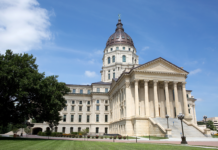Good morning everyone:
Well, it’s time for one last get-together later this week to bring an end to a legislative session that the governor described in a radio appearance last week as “rather bizarre.” With the 2025 session about over, you can start to look forward to the jockeying leading up to the 2026 elections that is expected to begin in earnest next month with a couple of announcements already being planned. Now on to the significant stories we published last week and other news you might have missed but need to know…
- Capitol roundup: What happened to about 60 bills and issues this session.
- The Kansas Supreme Court was asked last week to preserve a 2021 law enacted during a historic special session that shielded workers who refused to get a COVID-19 vaccine because of sincerely held religious views.
- Three lawyers are running to chair the panel that will screen candidates for the next justice of the Kansas Supreme Court. One previously served on the panel. Another wants to abolish the commission. And a third made news because he backed a bill in the Legislature overhauling faculty tenure.
- Republican state Rep. Pat Proctor last week became the first candidate to announce his candidacy for Kansas secretary of state.
- A conservative podcaster who made an unsuccessful attempt to run for a seat on the state Republican Party leadership team and wants to create a state militia says he’s running for governor next year.
- Gov. Laura Kelly last week vetoed a bill expanding the power of the Medicaid inspector general — a division of Attorney General Kris Kobach’s office — to investigate welfare benefits including cash, food and health assistance.
- Gov. Laura Kelly last week vetoed a bill directing her administration to seek a waiver from the federal government to exclude candy and soda from purchases covered by federal food assistance benefits.
- Gov. Laura Kelly last week signed a bill that’s intended to create a better climate for keeping hundreds of millions of dollars invested in Kansas banks. She also signed six other bills the same day as the banking legislation.
- Gov. Laura Kelly last week agreed to let a bill become law without her signature that would give the Kansas Legislature a voice in picking vacancies for the U.S. Senate.
- Gov. Laura Kelly last week vetoed a bill that limits the power of the state health secretary to prevent the introduction or spread of an infectious disease without probable cause.
- Gov. Laura Kelly last week vetoed a bill that was intended to create a climate for Kansas entrepreneurs to test novel business ideas in a setting where rules and regulations are temporarily or permanently waived.
- Gov. Laura Kelly last week vetoed a bill changing the budget process in a way that supporters say will prevent a state government shutdown if the Legislature and the governor don’t agree on a spending plan.
- Gov. Laura Kelly on Monday signed eight bills into law, including one that bans the use of ranked-choice voting.
- Gov. Laura Kelly last week signed seven bills into law that she said promoted government efficiency.
- Gov. Laura Kelly last week vetoed a bill banning election officials from taking money from the federal government for running elections unless approved by the Legislature or allowed by state law.
State loses round in election case
A group of civic organizations challenging a 2021 state law imposing new signature requirements for advance mail ballots has won a round in court.
Shawnee County District Judge Teresa Watson allowed a lawsuit challenging the law to continue, rejecting a request from the state to dismiss the litigation because of standing.
The law bars county election officers from accepting advance voting ballots sent by mail unless they verify that the signature on the envelope matches the signature on file in the county voter registration records.
The groups — the League of Women Voters of Kansas, Loud Light, the Kansas Appleseed Center for Law and Justice, and the Topeka Independent Living Resource Center — say the law violates state due process and equal protection guarantees.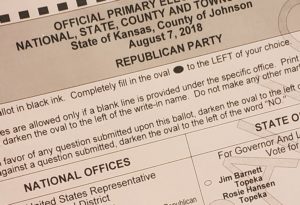
They argued in court that there was no standard for matching signatures, leaving it up to each county election official to decide how to verify the signatures.
Last year, the Kansas Supreme Court found that the signature verification requirement was a “valid effort” by the Legislature to pass laws that may be needed to ascertain whether Kansas residents are entitled to the right to vote.
However, the court sent the case back to the district court to consider whether the law and its implementing regulations comply with the constitutional guarantees of equal protection and due process.
The state tried to get Watson to dismiss the case after the Supreme Court ruling.
The state argued the groups challenging the signature requirement didn’t have legal standing to challenge the law.
The state, in its legal briefing, argued there was no certainty that anyone was harmed by the signature verification requirement.
But Watson said the Supreme Court’s decision to return the case gave her little choice but to allow the litigation to proceed.
“To do what defendants ask — dismiss this case for lack of standing — would require this
court to disobey the mandate of the Supreme Court,” Watson wrote.
“The Supreme Court has directed this court to analyze the merits of Plaintiffs’ due process and equal protection arguments regarding signature verification based on evidence and according to standards set forth in the Supreme Court’s majority opinion,” she wrote.
“And that is what this court will do.”
Governor’s office explains
hiring of Democratic Party chair
Gov. Laura Kelly’s chief of staff last week explained the hiring of Democratic Party Chair Jeanna Repass in a role as community programs manager.
“Jeanna Repass was hired through the normal process regularly used to hire employees and was based solely on her qualifications for the position she continues to serve in,” Will Lawrence said in a statement.
“State employees regularly engage in outside activities unrelated to their employment which is allowed under state law,” he said.
“This is especially true when it comes to exercising the constitutional right to participate in the democratic process.
“There never has been and never will be any connection between Jeanna’s state work and her uncompensated volunteer work.”
Repass declined to comment when reached Friday.
A state website showed that as of 2024, Repass worked as a community programs manager in the governor’s office with gross pay of $73,499.
It was not clear on Fridat how long Repass — who has been Democratic Party chair since February 2023 — has been with the governor’s office.
However, the Topeka Capital Journal reported on Monday that Lawrence offered her a job on March 2, 2023 and she would begin on March 6.
She was elected chair Feb. 25, 2023.
On the Republican side, the new chair of the state Republican Party, Danedri Herbert, works as the spokesperson for Kansas Attorney General Kris Kobach.
Herbert has been with Kobach in different capacities over the years, including when he was secretary of state and joined him when he became attorney general in 2023.
Kelly reflects on session
Democratic Gov. Laura Kelly last week made an appearance on KCUR’s “Up To Date” with host Steve Kraske, warning that the budget just passed by the Legislature could return the state to the dark fiscal of era of former Gov. Sam Brownback.
Kelly seized on the fact that the budget just approved by the Legislature will leave the state’s ending balance in the red by about $460 million by 2028 — although the state will still have a rainy day fund of about $1.8 billion.
Kelly described the regular session as “rather bizarre” because “so many things have been upended.”
She cited how the Legislature took charge of writing the new budget and the expedited session schedule to end by mid-April.
“The traditional way that we do the budget has been completely thrown out and this new process put in place that I think has questionable results,” she said.
The governor criticized the Republican-led Legislature for racing to pass a budget before the consensus revenue estimates are released later this month.
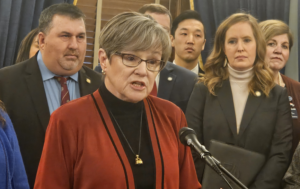
“The Legislature passed a budget where they have no idea what the revenues will actually be moving forward,” Kelly said.
“They don’t want to be here when that comes out,” she said. “The fact of the matter is you can’t run and hide from it.”
She recalled the consensus revenue estimates that were released in November 2014 about a week after Brownback was reelected and showed the state would collect $1 billion less in revenue in 2015 and 2016 than its projected expenses.
“We really are moving back to a very bad period of time,” she said.
She said she hoped the Legislature would open the budget back up when it returns April 10 for what could be a three-day veto session.
She also suggested that lawmakers consider a special session to address the budget.
House Speaker Dan Hawkins responded in his weekly newsletter.
“She must think the people of Kansas just fell off the turnip truck because this week, she went on the radio and proclaimed that the legislature is spending the state into the depths of despair,” he wrote.
“She even recommended we call a special session to redo the budget. For a Governor who claims to be a fiscal hawk, she sure does have an odd obsession with special sessions that cost taxpayers $84,000 a day.”
He said the governor proposed spending more money. The governor offered up a state general budget that totaled $10.65 billion for fiscal 2026. The budget approved by the Legislature equaled $10.63 billion for fiscal 2026.
Kelly further said there was very little property tax relief coming from the Legislature other than eliminating 1.5-mill tax for maintenance of some state buildings.
“It’s nearly impossible for state government to fix the property tax issue,” she said. “Property taxes are levied by and large at the local level.
“It really is up to the local elected officials and local citizens to figure out that issue,” she said. “The Legislature can talk about doing this, that and the other thing to relieve property tax issues, but they don’t really have the tools.”
Kraske also asked Kelly about how she’s dealing with the expanded Republican supermajority in the Legislature, adding it “can’t be a lot of fun.”
“I didn’t run for office to have fun,” Kelly said with a chuckle. “I never expected this to be a barrel of laughs.”
More seriously, she conceded “it’s a little harder” but not much different than the past.
She said her staff is trying to find Republicans who might be willing to break ranks on issues that are important to them.
“It’s just a matter of finding them on the issue that matters,” she said.
“It’s a lot of work,” she said. “My staff is really beating the bushes to find those folks, but we will when it’s possible.
“We will hope that the public’s reaction to some of the things the Legislature is doing will cause them to revert and take a different path,” she said.
Congressman backs ‘no rogue’ rulings bill
U.S. Rep. Derek Schmidt last week came out in support of a bill that’s focused on limiting the power of federal district judges’ ability to issue injunctions that have a national scope.
Schmidt joined House Speaker Mike Johnson in supporting the No Rogue Rulings Act introduced by Republican U.S. Rep Darrell Issa of California.
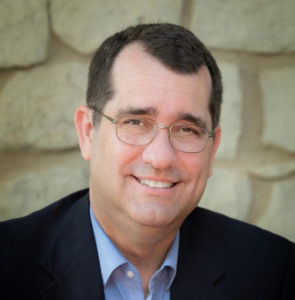
Issa’s bill would restrict federal judges’ power to issue nationwide injunctions, curtailing their ability to make decisions that affect people outside their district.
“Practically every week, we see yet another federal judge issuing yet another nationwide injunction in yet another gambit to stop President Trump from exercising his Constitutional Article II powers and carrying out the policy agenda he promised the American people he would make a reality,” Issa said in a statement earlier this month.
The bill has been picking up support from Republicans, including the president, who has run into several setbacks in court, including an order issued by a federal judge instructing the Trump administration to turn around planes deporting immigrants.
Issa called the ruling excessive and “outrageous.” He said the ruling made a “mockery” of the power given to federal judge.
Meanwhile, Schmidt appeared at a news conference last week to make a case for the bill,
“We are not debating whether people who are aggrieved can walk into court and seek redress for themselves,” Schmidt said during a news conference last week.
“We are not debating whether a district judge has the ability to resolve a case or controversy properly brought in front of them,” he said.
He said the issue addresses whether a federal judge should be able to stop the actions of the president or federal law nationally.
“That is an extraordinary power and that’s why it’s been used sparingly through most of our history,” he said. “It is an extraordinary remedy that is being abused.”
“It is time for Congress to step in if the court’s won’t do it and restore balance so that thsi “rare tool is, in fact, used rarely,” he said.
Issa has said that in his first term, Trump has faced 64 injunctions compared to 14 for President Biden, 12 for Barack Obama and six for George W. Bush.
He said Trump already faces 12 injunctions in his second term,
Peterson memorial
A celebration of life is set for Wednesday April 9 for the late longtime statehouse lobbyist John Peterson, who died earlier this year.
The service is scheduled for 5 p.m. at Topeka Country Club, 2700 S.W. Buchanan in Topeka.
A fund has been set up to honor Peterson’s vision to see art displayed on the walls of the statehouse.
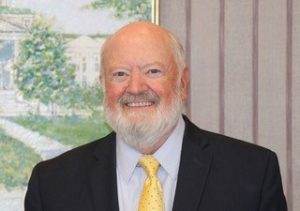
Memorial contributions may be made to ArtsConnect at the request of Peterson’s family and friends, so those gifts may be used to purchase works of Kansas artists for the Capitol.
Contributions can be made the fund at ArtsConnect online https://artstopeka.org/
Any questions may be directed to Michelle Butler [email protected]
Founder and chief executive of Capitol Strategies, Peterson had been lobbying continuously since 1976 before his died in January.
He served in the Kansas House before starting his career as a lobbyist.
Peterson was first elected to the Kansas House of Representatives in 1970 where he served for four years.
In 1974, Peterson won the Republican primary in the 2nd Congressional District and unsuccessfully challenged sitting Democratic Congresswoman Martha Keys.
Peterson later established Capitol Strategies, one of the longest serving contract lobbying firms in Kansas.
Bill screening for noncitizen voters
becomes law
Gov. Laura Kelly on Friday allowed a bill to become law that’s intended to keep noncitizens from voting by requiring the secretary of state to match names on voter rolls with a list of noncitizens who have driver’s licenses.
The bill calls for the division of motor vehicles within the Department of Revenue each quarter to relay a list of all permanent and temporary driver’s licenses issued to noncitizens to the secretary of state to determine if they’re on the voter rolls.
The bill passed the Senate on a 32-8 vote. The House approved the bill 83-35. The governor opted to allow the bill to become law without her signature.
“While I strongly support processes to ensure that our voter rolls are regularly updated to ensure accuracy and eligibility, I am concerned that this legislation does not specifically address possible conflict between federal and state law with regard to the potential removal of individuals by the secretary of state,” Kelly said in a statement.
“Specifically, this bill creates a system for regular removal of people on the voter rolls but fails to carve out protections provided under federal law and could disenfranchise eligible voters by not giving them enough time to remedy the issue,” she said.
There were about 38,000 people in Kansas who had active temporary driver’s licenses as of December.
Out of the state’s more than 2 million voters, state officials found 202 potential matches when comparing a temporary driver’s license list to the voter rolls.
About 120 of those were false positives, and 85 warranted additional investigation, according to the secretary of state’s office.
Twenty-one of the 85 had a voting history and would require even further investigation to determine citizenship status.
Guaranteed income programs
Gov. Laura Kelly last week allowed a bill to become law that prohibits cities and
counties from establishing a guaranteed income program funded with tax revenue unless it’s approved by the Legislature.
A guaranteed income program provides regular, unconditional cash payments to individuals intended to support basic needs and reduce poverty and inequality.
Testimony indicated there were more than 150 of these types of programs nationally although none were identified in Kansas.
Douglas County did partner with community agencies to present a screening of a documentary that looked at pilot programs testing the effects of giving people an extra $500 to $1,000 monthly with no strings attached.
Supporters of the bill said that the Douglas County Community Health Plan had a five-year agenda that’s goals included participating in a guaranteed income program
The Senate approved the bill 29-11 and 86-37 in the House.
“I have long been a proponent of local control, allowing local elected officials to make decisions for the communities they live in and were elected to represent,” Kelly said in statement explaining why she didn’t sign the bill.
“However, I am concerned that a guaranteed income program would exacerbate the current problem of disproportionately high local property taxes,” she said.
The League of Kansas Municipalities opposed the bill, saying it knew of no cities seriously considering instituting a guaranteed income program.
“Even if one city is considering, this Legislature should not punish all 625 cities simply because one acts in a manner that causes disagreement by officials who do not live in that city,” said the league’s lobbyist, Spencer Duncan.
The bill was backed by the Opportunity Solution Project, which said this type of program is “ineffective, reduces work and traps people in government dependency.”
Schwab seeks info
about voter deaths
Secretary of State Scott Schwab is seeking information from the Social Security Administration to learn about out-of-state deaths in an effort to maintain voter rolls.
In a letter to the Social Security Administration, Schwab said that federal law requires states to make a reasonable effort to remove names from the official lists of eligible voters who died.
He added that state law requires that when someone dies or is disqualified from voting, the registration of the voter shall be removed from the registration books.
Schwab is seeking access to the Death Master File, which is a database containing death records reported to the Social Security Administration including Social Security number, date of birth and the date of death.
Schwab said the agency requested the database in 2021 and 2023 and were denied.
The secretary said President Donald Trump’s executive order on election integrity supported the request for the database.
Lobbyist transactions
Here are the latest lobbyist transactions from the secretary of state’s office.
New Registrations:
Dominic Coletti, Foundation for Individual Rights and Expression
Matt Hickam, RideCare
Terminations:
Ashley Beason, Blue Cross and Blue Shield of Kansas Inc.
Ashley Beason, BlueCross BlueShield Kansas Solutions Inc.
Carrie Riordan, Immunize Kansas Coalition
Andrew Wiens, Indigov
Supreme Court Medicaid case
draws interest from Kansas
The U.S. Supreme Court last week took up a case that will decide whether Planned Parenthood should be cut out of the state’s Medicaid program because it provides abortions.
The case, which has drawn interest from the Kansas attorney general and a handful of Kansas lawmakers, involves Planned Parenthood South Atlantic.
Planned Parenthood runs two clinics in South Carolina that provide medical care for low-income patients through Medicaid.
They provide physical exams, cancer screenings and screenings for diabetes, anemia, high cholesterol and high blood pressure. The clinics also provide abortion services.
South Carolina’s governor issued an executive order in 2018 that ended Planned Parenthood’s participation in the state’s Medicaid program because it funded abortions.
The order said that state funds used to reimburse Planned Parenthood could be used to indirectly finance abortions, although Medicaid only covers services unrelated to abortion.
The central issue in the case is whether Medicaid beneficiaries can go to court seeking to enforce a provision in law that allows them to seek care from any provider qualified and willing to participate in the program.
Kansas Attorney General Kris Kobach filed a brief on behalf of Kansas and 17 other states in support of South Carolina.
There also were 311 state legislators representing 36 states who signed a brief supporting South Carolina, including eight from Kansas.
The lawmakers from Kansas signing the brief were House Speaker Dan Hawkins and Republican Reps. Paul Waggoner of Hutchinson, Bill Rhiley of Wellington, Rep. Doug Blex of Independence, Steven Howe of Salina, Kristey Williams of Augusta, Patrick Penn of Wichita as well as Republican Sen. Renee Erickson of Wichita.
“South Carolina’s policy excluding abortion facilities, including Planned Parenthood, as a
Medicaid provider is expressly constitutional…,” the lawmakers argued in their brief.
“South Carolina is entitled to exclude Planned Parenthood from Medicaid funding, and may do so, even for the sole reason that, as a state, it desires to promote life and oppose abortion and any facility that engages in it,” the brief said.
“The ability of the states to set their own policy regarding Medicaid qualification decisions
and exclusions should not be diluted by the interference of third parties.”
Seven years ago, the U.S. Supreme Court decided against reviewing a lower-court ruling that said the Kansas couldn’t cut Planned Parenthood off from Medicaid funding.
The court’s decision effectively upheld a decision from the 10th Circuit Court of Appeals that found states didn’t have unlimited power to terminate providers from their Medicaid program.
Here’s a roundup of coverage from last week’s before the court:
- From The Associated Press: The Supreme Court appeared divided over whether states could end Medicaid funding to Planned Parenthood.
- From SCOTUSblog: The Supreme Court appeared mixed on whether Planned Parenthood could challenge an executive order issued by the South Carolina governor barring Medicaid funding for the provider.
- From CBS News: The Supreme Court takes up case over whether states could end Medicaid funding to Planned Parenthood.
- From ABC News: The Supreme Court appeared divided over whether individual Medicaid beneficiaries can sue a state over access to Planned Parenthood services.
- From Roll Call: Some members of the U.S. Supreme Court appeared amenable to allowing South Carolina to end federal funding for Planned Parenthood.
- From Reuters: Conservative members of the U.S. Supreme Court appeared to be leaning toward siding with an executive order issued in South Carolina ending Medicaid funding for Planned Parenthood.
Farm outlook slipping
The outlook of farmers was less optimistic in March about both current and future economic conditions on their farms than a month earlier — and that was before last week’s tariff news that rocked the stock market.
The latest Ag Economy Barometer produced by Purdue University reports that producer outlook plummeted 12 points to 140 in March from the month before and that was before last week’s news engendering fear that farmers could lose their biggest export market.
Farmers’ view of the future was decidedly less optimistic in March than in February, as the index of future expectations fell 15 points to 144.
The index of current conditions dropped 5 five points in March to 132.
“Falloffs in key crop prices since mid-February, combined with concerns about the future of agricultural trade and farm policy, were important factors behind the sentiment shift,” researchers said.
“Even with the decline in expectations for the future, farmers were still more optimistic about the future than the current situation, as the future expectations index remained 12 points higher than the current conditions index,” they said.
The survey of 400 producers nationally is similar to the consumer sentiment survey done at the University of Michigan.
The Purdue study covers farms with gross revenues of more than $500,000.
The study has a baseline index of 100. Anything above 100 is generally more positive. Anything below 100 tends to be more negative.
The report found that farmers are increasingly concerned about trade policy, which didn’t even account for the Trump tariff news from last week.
Before the November 2024 election, farmers in the Purdue surveys said they were more concerned about interest rate policy than trade policy, according to the report.
But since the November election, worries about trade policy have soared with 43% of
respondents, on average, citing it as the most important policy or program affecting their farm, according to the report.
“That compares to an average of 13% of farmers since the election who pointed to interest rate policy as most important.”
Bankers pessimistic about rural economy
Bankers across the Midwest are reporting below-neutral growth for the 18th time in the last 19 months, with a dour outlook for farm income in the coming months.
Creighton University’s latest Rural Mainstreet Index found that the reading for the overall 10-state Midwest region, including Kansas, remained below the 50.0 neutral reading in March, according to the monthly survey of bank CEOs in rural areas
The index ranges between 0 and 100, with a reading of 50.0 representing growth neutral.
The region’s overall reading for March increased to 41.1 from February’s 38.0. The index for Kansas fell slightly to 36.5 from 36.8. Kansas started the year at 40.1.
“The economic outlook for 2025 farm income remains weak according to bank CEOs,” said Ernie Goss, the Jack A. MacAllister chair in regional economics at Creighton University’s Heider College of Business.
“However, farm commodity prices have recently improved, but not enough for profitability among a high share of producers,” Goss said in a statement.
About 63% of bankers expect 2025 farm income to be down from 2024’s farm income levels. About 4% of bank CEOs predict 2025 farm income to expand from 2024’s level, according to the survey.
While the latest survey came out before last week’s tariff news, it reported that 70.4% of bankers supported the Trump administration taking a more flexible approach to tariffs.
Rural bankers remained downbeat about economic growth for their area over the next six months, the survey said. The March confidence index sank to 30.4 from 40.0 in February.
“Weak grain prices and negative farm cash flows, combined with downturns in farm equipment sales over the past several months, continued to push banker confidence lower,” Goss said.
Further, the survey found that “home sales remained soft with a March reading of 42.6, up from February’s 40.0.
“Regional retail sales rebounded but remained extremely weak, much like the nation, with an index of 40.4, up from 28.3 in February,” the survey.




